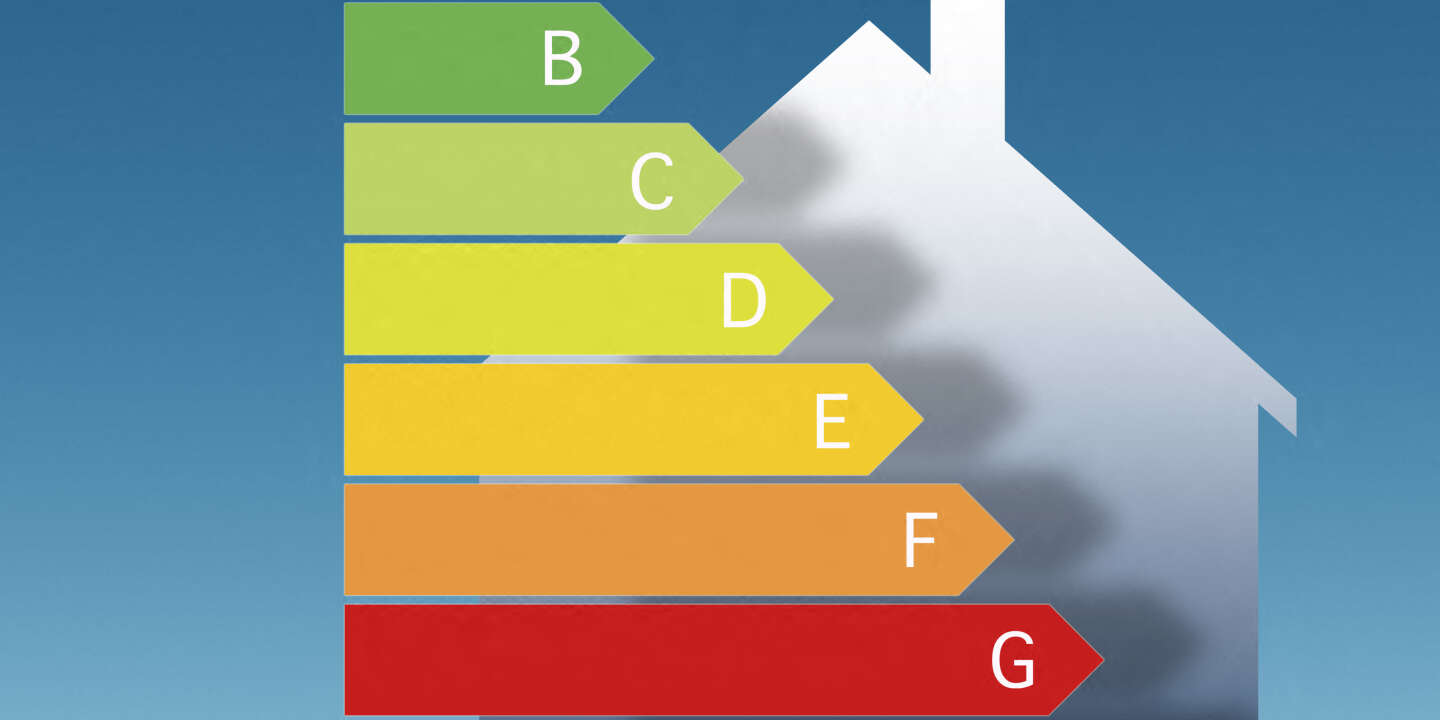Real estate investors are going… green. More specifically to the “green value”. Behind this term is the idea that the selling price of a home that consumes a lot of energy (classified as E, F or G by the energy performance diagnosis – DPE –, whose scale goes from A to G) receive a discount compared to more economical goods.
“This idea is permeating as investors will be the first to be affected by the Climate and Resilience Act”says Jean-Marc Torrollion, president of Fnaim. Voted mid 2021, this text could indeed weigh on the profitability of landlords. From August 25, 2022, rents for homes classified F or G will be frozen throughout the territory (this is already the case in so-called “tense” areasie most major agglomerations).
And if, on 1er January 2023, the 90,000 homes whose annual consumption exceeds 450 kilowatt-hours (kWh) per square meter per year (this is more than the G-label limit) no longer has to be offered for rent, this ban will be extended to all properties classified in 2025 if G, then, in 2028, to “F”. E-rated homes should be banned from the rental market by 2034.
25% discount
In addition to the question of rent levels and authorization to rent, the other issue of the green value of homes for investors is the valuation over time of this property. The value of the most energy-intensive homes is already falling. For example, the real estate advertising portal Bien’Ici has observed a decrease of approximately 25% in the price per square meter of G-rated homes since June 2021.
The annual studies on the green value of homes published by Notaires de France report significant reductions in some cases for energy-intensive properties. For example, according to the latest survey, in 2020 houses labeled F or G were sold in New Aquitaine, on average 20% cheaper than comparable properties rated D. It is 8% in Provence-Alpes – French Riviera.
“Temperatures in these regions are higher, limiting the importance of ECD for buyers”, says Frédéric Violeau, notary in Caen. who specifies that? “The discount on thermal colanders mainly affects relaxed markets, where supply and demand are in balance, but much less tight markets, such as Ile-de-France”.
Banks are also increasingly taking the energy criteria of homes into account when granting a loan. “Investors who go to a bank with a G-rated property must submit quotes for the improvement work they want to carry out so that the property can be rented out on a long-term basis.says Olivier Lendrevie, president of mortgage broker Cafpi. The investors’ global plan now takes into account the cost of the works. †
You have 47.77% of this article left to read. The following is for subscribers only.




